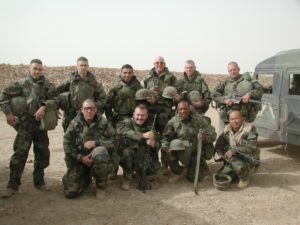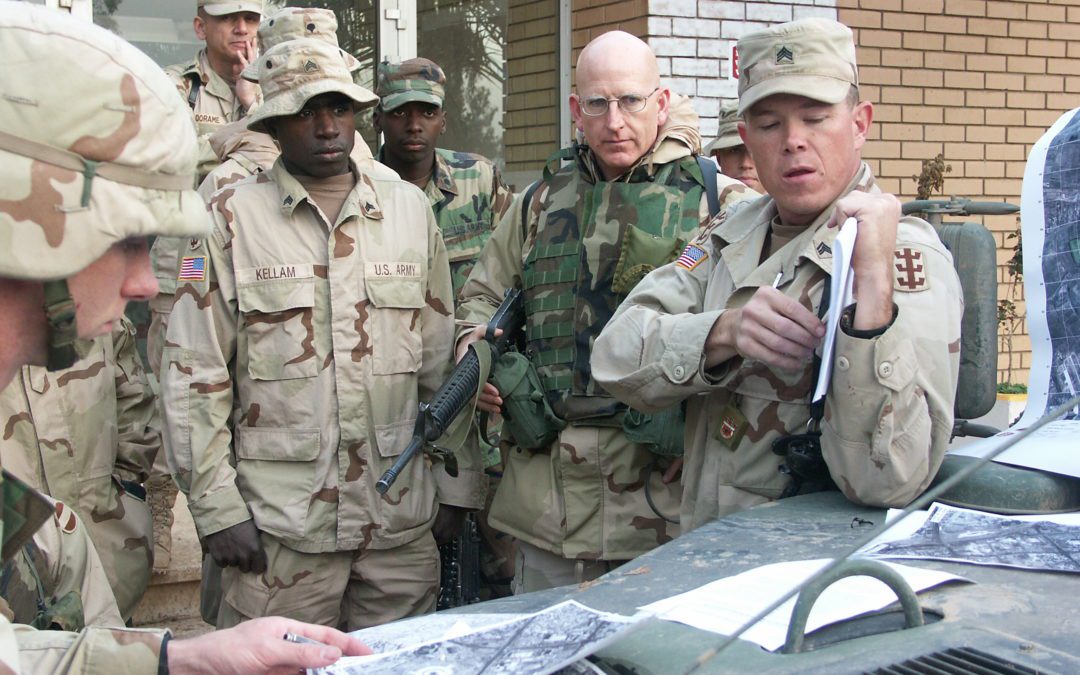My Hyperthymia and Bipolar Disorder Helped me Until They Didn’t….
Author: Gregg F. Martin, PhD, Major General, US Army (Retired)
My first four decades of life were healthy, happy and successful, from childhood through West Point and throughout most of my military career. I was an accomplished student, athlete and leader, known for high levels of energy, enthusiasm and drive.
I completed the Army’s elite and grueling Ranger school, ran seven marathons (each under three hours, including a 2:36), and completed a Ph.D. at the Massachusetts Institute of Technology, plus much more; aIl while happily married and helping my wonderful wife raise our three talented sons.
I recently learned that I benefited from what psychiatrists call ‘hyperthymia’, or a ‘hyperthymic temperament.’ This means that I was in a near-continual state of mild mania, which gave me abnormal levels of energy, drive, enthusiasm, extroversion, happiness, optimism, positivity.
This psychiatric condition, which is below the level of a mental illness, lasted from my teenage years, into my forties. It elevated into full-blown mania and bipolar disorder from 2003 to 2016, and has since returned. (Note that hyperthymia is distinct from ‘hypomania’, which is episodic – vice continual – states of mild mania.) Hyperthymia helped fuel my success by amplifying my natural abilities and talents. This condition is well explained in acclaimed psychiatrist Dr. Nassir Ghaemi’s fascinating book, “A first-rate madness – uncovering the links between leadership and mental illness.”
My hyperthymic personality put me in good company, with former presidents John F. Kennedy and Franklin D. Roosevelt. But on the down side, it put me at greater risk for developing full-blown mania, bipolar disorder, and anxiety disorder, which is precisely what happened.
In 2003, something seriously changed. I thrived while commanding and leading a combat engineer brigade of more than ten thousand soldiers in the Iraq War, including the attack to Baghdad and beyond.
The more intense the pressure, stress, and danger, the happier, more exuberant, energetic and enthusiastic I became. Indeed, I had never felt so alive, so focused, and so high on life as while leading soldiers in combat. I marveled at the courageous and amazing things our engineers did on the battlefield. Perhaps this confession alone is evidence of mental illness.
But either way, my combat euphoria — like other chemical intoxicants — would have long-lasting physical effects on my brain, particularly the neurological circuitry and elements responsible for producing and regulating the mood-related chemicals of dopamine and endorphins. Too much of these chemicals creates mania, and too little leads to depression.
What I did not realize at the time was that this fabulous euphoria and “high”, were my brain’s response to the intense elevation of stress, a high-performing state of mania. My doctors have determined that my genetic predisposition for bipolar disorder was activated by the intense stress of war. I suddenly went from having a latent bipolar potential to actual, activated bipolar disorder.

Photo by Tom Sawyer
This Iraq War “triggering event” is the confirmed opinion of the Army Medical Department and the Department of Veterans Affairs in their medical analysis and assessments of my condition.
But at the time, no one, myself included, knew any of that. In fact, extra energy, enthusiasm, focus and creativity generated by my mania significantly enhanced my performance in combat. I felt like I was a kind of superman – fearless, overflowing with confidence, able to accomplish or do anything, to include flying. But feeling like superman should have been a warning sign.
Over the next decade, my performance and recognition by my superiors continued to rise. I was promoted twice and assigned to increasingly complex and difficult assignments in the Army.
Yet during this time — most of which I was a general officer — my manic highs surged higher and depressive lows sank lower. Meanwhile, neither my family, friends, work colleagues, nor my doctors had any idea that I was afflicted with a brain malady, let alone bipolar disorder.
Anonymous complaints eventually made their way to my boss. And by the time my family realized something was seriously wrong, I had been forced to resign from the presidency of the National Defense University (NDU).
Soon, the moon of depression would eclipse the sun of mania.
To be continued…
This series of blogs tells the story of a general’s service and success, followed by mental health disaster and recovery, then new life. The purpose is to raise understanding, build hope, and help abolish the stigma.


